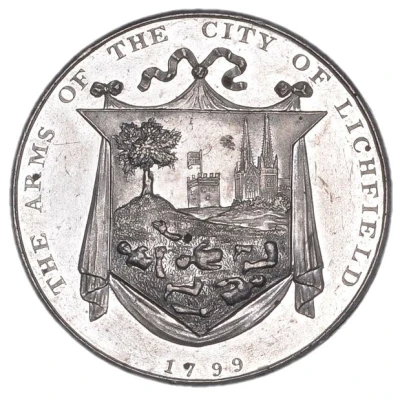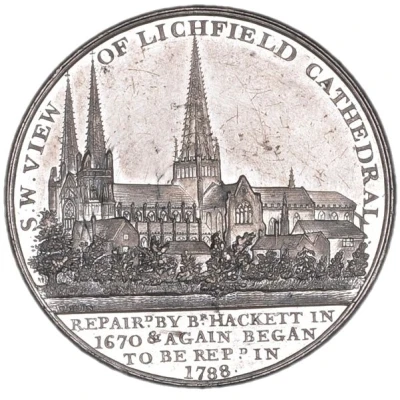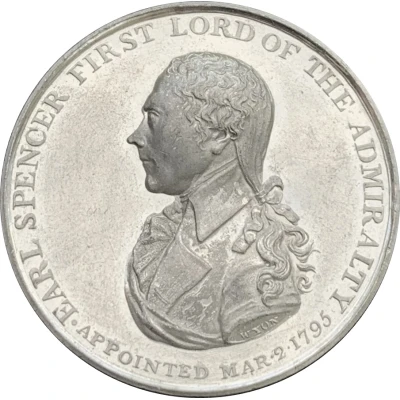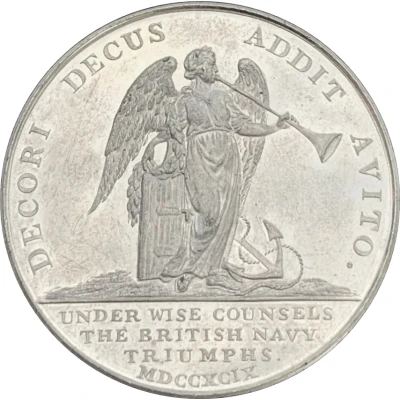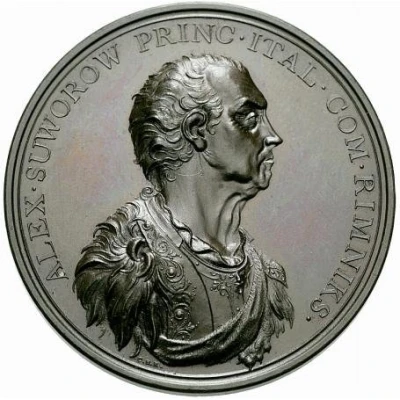
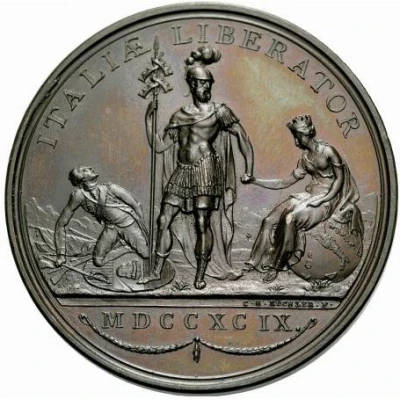

© Sincona AG
Medal - Paul I Defeat of the French Revolutionary armies by Field Marshal Alexander Suvorov and his elevation to a Prince of Italy ND
1799 year| Bronze | 52.72 g | - |
| Location | United Kingdom (United Kingdom, British Overseas Territories and Crown Dependencies) |
|---|---|
| King | George III (1760-1820) |
| Type | › Medals |
| Year | 1799 |
| Composition | Bronze |
| Weight | 52.72 g |
| Shape | Round |
| Technique | Milled |
| Demonetized | Yes |
| Updated | 2024-11-14 |
| Numista | N#126837 |
|---|---|
| Rarity index | 97% |
Reverse
Suvorov as ancient warrior holding spear with four crowns, defeated French soldier on l., Italia on seated on globe on r. holding the warrior's hand.
Lettering:
ITALIAE LIBERATOR
MDCCXCIX
Engraver: Conrad Heinrich Küchler
Comment
Alexander Suvorov, 1730-1800, Russia's military genius, never defeated in battle, an achievement only claimed by Alexander the Great, Sulla and Dschenghis Khan, fought against the Turks and was made Count Rymniksky by Catherine the Great after his stunning victory by the Rymnik River. He also conquered the „impregnable„ fortress of Ismail in Bessarabia. In honour of this event Russia's first national anthem was wrirren- Let the thunder of victory sound„. Гром победы, раздавайся! Веселися, храбрый Росс! Звучной славой украшайся.Магомета ты потрёс!In 1794 he broke the Polish Uprising under Koscziusko, tarnishing his reputation by allowing the murder of 20'000 Poles by Cossack troops. When Catherine II died in 1796, he lost his protector and friend. Her son Paul I dismissed him in disgrace but recalled him in 1799 for the campaign in Italy against French revolutionary armies. He soon drove practically all French troops from Italy and was made a Prince of Savoy by the King of Sardinia. After his brilliant crossing of the Alps, for which he is best remembered in Switzerland, he was made generalissimo. However after his return to Russia in 1800, Paul I refused him an audience and he soon died afterwards.
